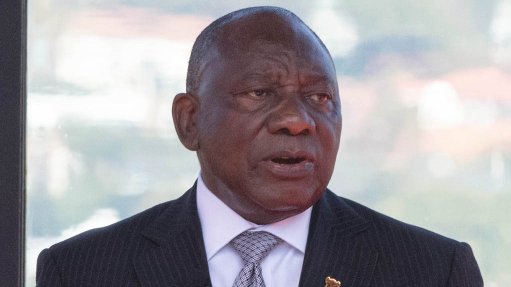South Africa’s Climate Resilience Symposium: Addressing an Urgent Crisis
In a world increasingly marred by the devastations of climate change, the recent Climate Resilience Symposium in South Africa emerges as a pivotal moment for the country’s future. With a distinguished lineup of speakers, including Programme Director Ms. Thami Nkadimeng, Minister of Energy and Electricity Dr. Kgosientsho Ramokgopa, and Deputy Minister of Finance Dr. David Masondo, the symposium addresses the intersection of climate change, economic stability, and social equity.
Background and Recent Events
The symposium takes place against the backdrop of severe storms that recently battered the Western Cape. These storms caused widespread destruction to homes, communities, and vital infrastructure. The Port of Cape Town, South Africa’s second-largest container terminal, was significantly impacted. Disruptions in the port, which primarily handles agricultural exports, underscore the broader economic implications of climate change, particularly for a country heavily reliant on its agricultural sector.
Economic Toll of Climate Change
The disruptions caused by extreme weather events manifest as increased business costs, reduced competitiveness, and stunted employment growth. Financial repercussions cascade across the economy, resulting in lower tax revenues and higher government spending on disaster relief and social support. Infrastructure damage from storms and floods incurs substantial repair costs, stretching public finances and necessitating increased borrowing, which in turn limits investment in other critical areas.
National Treasury’s Role
Given these multifaceted challenges, South Africa’s National Treasury is central to formulating a robust response. The symposium, convened by the National Treasury in collaboration with the Presidential Climate Commission, aims to integrate climate objectives into macro-fiscal policies. This integration is crucial for building an inclusive, resilient, and sustainable economy.
Global Context and Just Transition
South Africa’s reliance on coal for cheap electricity, historically a competitive advantage, now poses significant risks. As global partners adopt measures like the European Union’s Carbon Border Adjustment Mechanism, South Africa’s carbon-intensive industries could face penalties, eroding their global market competitiveness. The nation must decarbonize at a pace that balances economic stability with environmental sustainability.
Strategic Initiatives
Several key initiatives highlight South Africa’s approach to confronting climate change:
- Renewable Energy Independent Power Producer Procurement Programme: This program has attracted over R209 billion in investment, bolstering electricity grid capacity.
- Integrated Resource Plan: Currently being updated, this plan outlines South Africa’s medium and long-term energy mix.
- Just Energy Transition Investment Plan: This $98 billion plan drives investments in green technologies, skills development, and economic diversification.
Carbon Tax and Climate Finance
South Africa’s carbon tax is a cornerstone of its strategy to lower greenhouse gas emissions. By incentivizing companies to reduce their carbon footprint, the tax also generates revenue for climate initiatives like renewable energy projects and energy efficiency programs. A vital part of the nation’s climate finance strategy involves leveraging both public and private capital.
Call to Action
The symposium underscored the necessity of collaborative efforts between all societal sectors—government, business, labor, civil society, and international partners. The urgency of climate action cannot be overstated. By working together, South Africa can build a climate-resilient nation, ensuring a sustainable future for generations to come.
Conclusion
As we confront a climate emergency, indecision is not an option. South Africa must pursue a green industrial agenda, create jobs, and grow its economy through investments in renewable energy and green infrastructure. It’s a delicate balance, but with determined action and robust financial strategies, South Africa can safeguard both its economy and its environment.
For more information, visit the official website of the Presidential Climate Commission.
This article provides a comprehensive overview of the key points discussed at the Climate Resilience Symposium, contextualizing the event within recent climate impacts and broader economic considerations. It highlights strategic initiatives and calls for unified action to tackle the pressing challenge of climate change.
